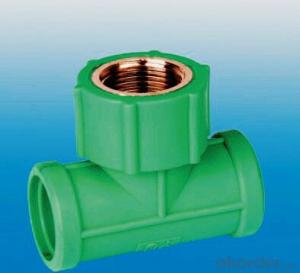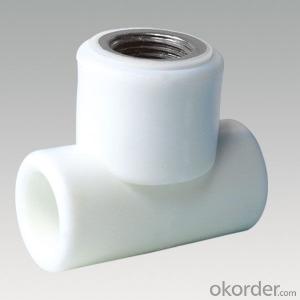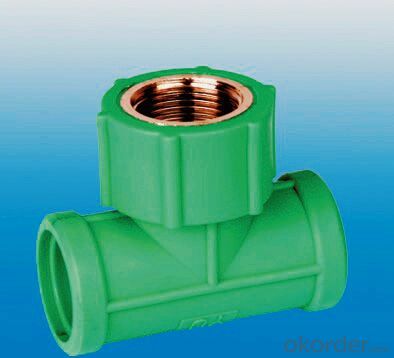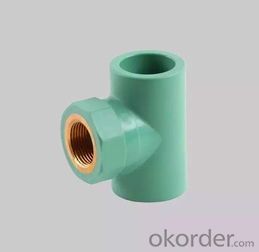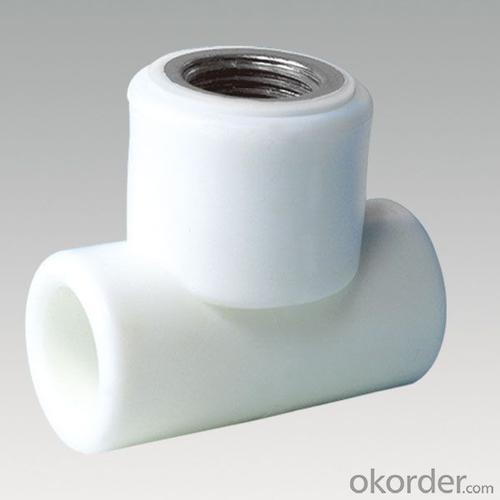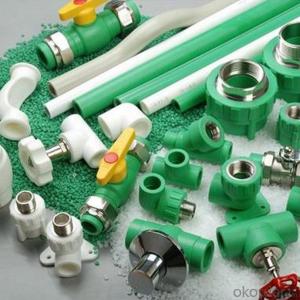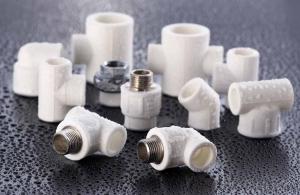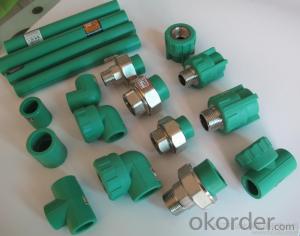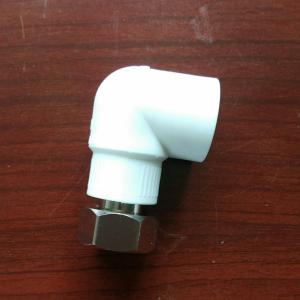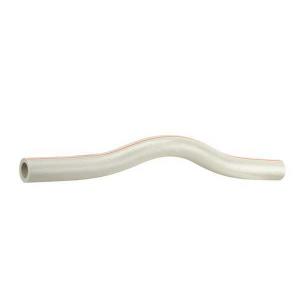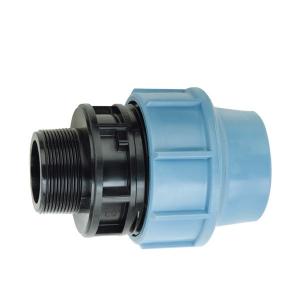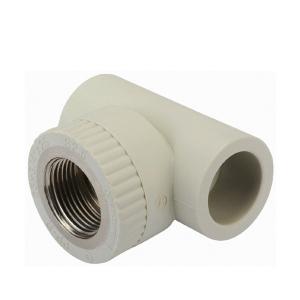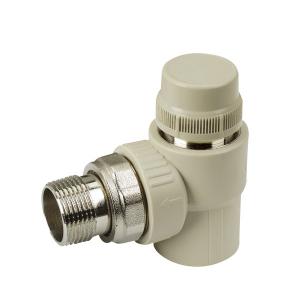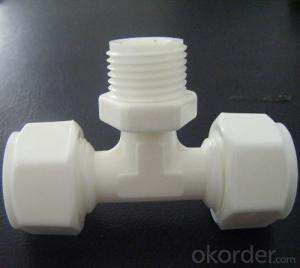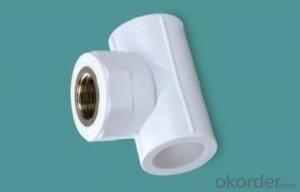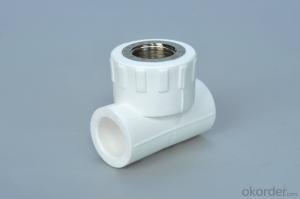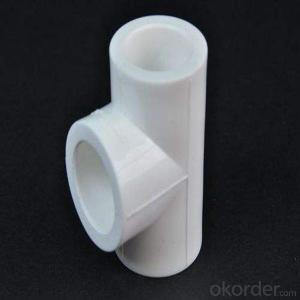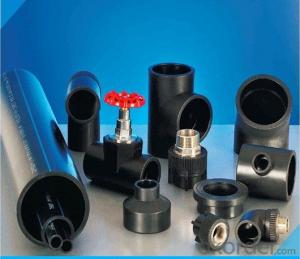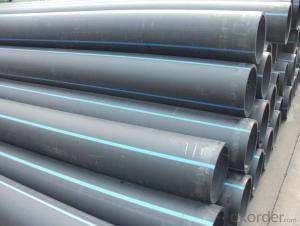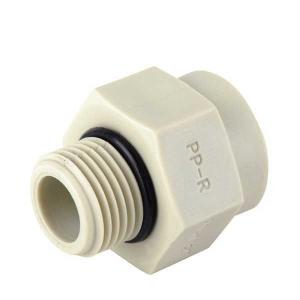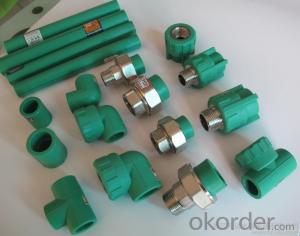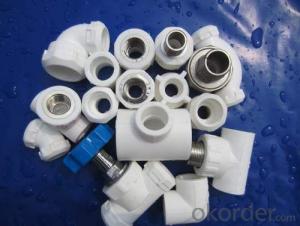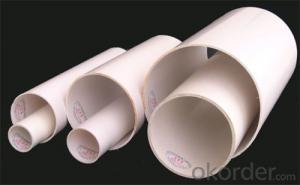75mm PPR Equal Tee Degree Plastic Pipe Fittings Used in Industrial Fields in China
- Loading Port:
- Ningbo
- Payment Terms:
- TT OR LC
- Min Order Qty:
- 1000 pc
- Supply Capability:
- 100000 pc/month
OKorder Service Pledge
OKorder Financial Service
You Might Also Like
Product Overview:
1.It is used in industrial fields, agriculture and irrigation.
2.Beauty appearance.
3.Thermal insulation and energy saving.
4.Easy installation
5.excellent heat resistance and pressure resistance
6.affordable price
Specifications
Standard: DIN8077/8078
Material: R200P from Korea
Size: DN20-63
Color: Green, White, Grey, Blue
Packaging Details:
1. Large carton: 515 x 400x 220 Cubage: 0.04532 M3
Small carton: 390x255x250 Cubage: 0.0248 M3
2. PE poly bag+ carton Delivery Detail: 15 days/ 20" container; 25 days/ 40HQ
Product Description
Pressure | Size(mm) | Pressure | Size(mm) |
PN1.25MPA | 20*2.0 |
PN1.6MPA | 20*2.3 |
25*2.3 | 25*2.8 | ||
32*2.9 | 32*3.6 | ||
40*3.7 | 40*4.5 | ||
50*4.6 | 50*5.6 | ||
63*5.8 | 63*7.1 | ||
75*6.8 | 75*8.4 | ||
90*8.2 | 90*10.1 | ||
110*10.0 | 110*12.3 |
Product Show
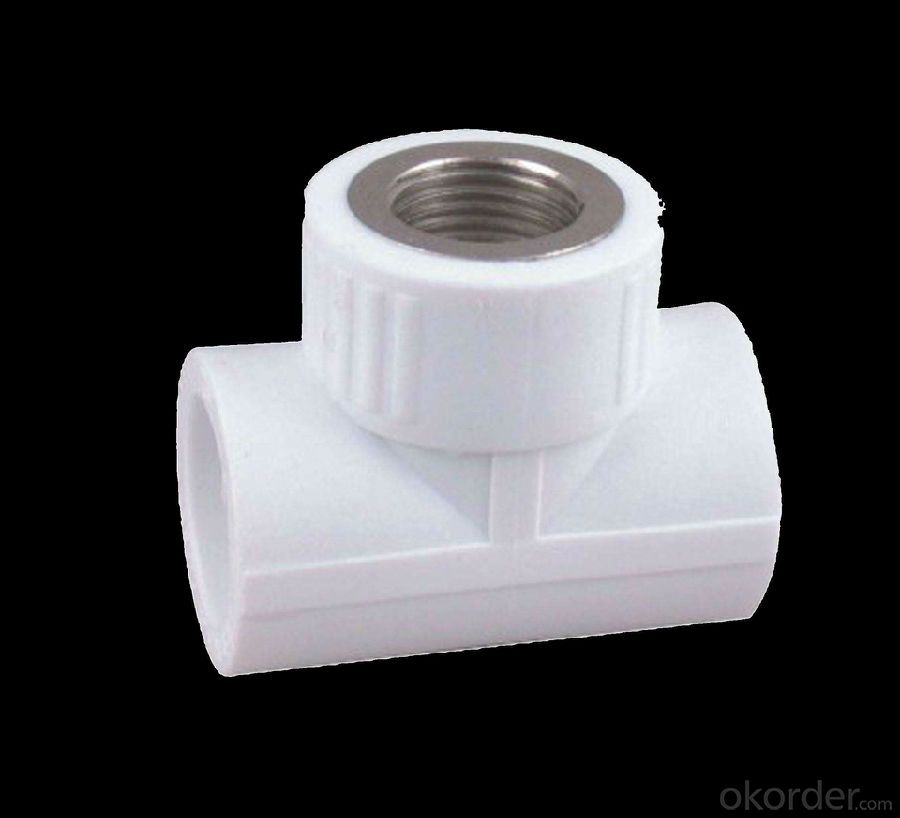
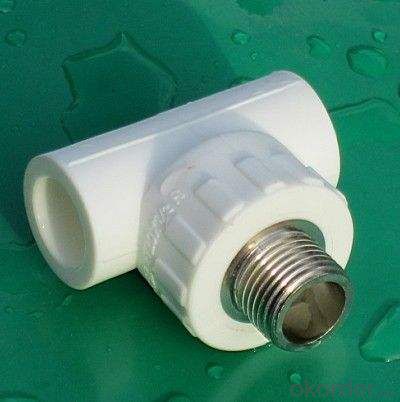
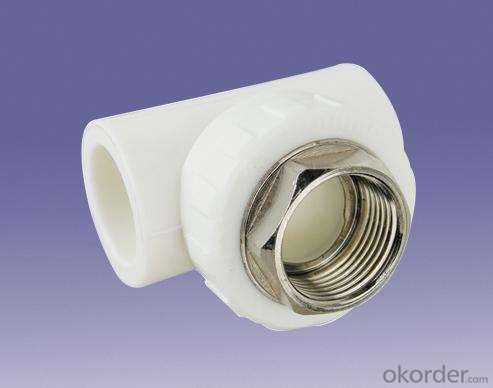
Our Advantages:
1) Healthy, bacteriological neutral, conforming to drinking water standards
2) Resistant to high temperatures, good impact strength
3) Convenient and reliable installation, low construction expenses
4) Excellent heat-insulation property from minimum thermal conductivity
5) Lightweight, convenient to transport and handle, good for labor-saving
6) Smooth inner walls reduce pressure loss and increase flow speed
7) Sound insulation (reduced by 40% compared to galvanized steel pipes)
8) Light colors and excellent design ensure suitability for both exposed and hidden installation
9) Recyclable, environment-friendly, accords with GBM standards
- Q: Hot melt connection method of PE-RT plastic pipe and the matters needing attention
- The hot melt tool is connected to the power supply and can start operation until the working temperature indicator is bright;
- Q: Are plastic pipe fittings resistant to thermal expansion and contraction?
- Yes, plastic pipe fittings are generally resistant to thermal expansion and contraction. Unlike metal fittings, plastic materials have a greater ability to expand and contract without undergoing significant dimensional changes or structural damage. Additionally, plastic pipes and fittings have lower thermal conductivity, which further helps in minimizing the effects of temperature fluctuations. However, it's important to consider the specific type of plastic used in the fittings, as different materials may exhibit varying degrees of resistance to thermal expansion and contraction.
- Q: What are the common failure modes of plastic pipe fittings?
- The common failure modes of plastic pipe fittings include cracking, leaking, warping, and degradation of material due to exposure to chemicals or extreme temperatures.
- Q: How do plastic pipe fittings compare to fiberglass fittings?
- Plastic pipe fittings and fiberglass fittings have their own advantages and disadvantages. Plastic fittings are generally more affordable and easy to install, but they may not be as durable or resistant to certain chemicals as fiberglass fittings. On the other hand, fiberglass fittings are known for their superior strength and resistance to corrosion, making them a preferred choice in harsh environments. Ultimately, the choice between plastic and fiberglass fittings depends on the specific application and the level of durability and chemical resistance required.
- Q: Are plastic pipe fittings prone to leaks?
- Plastic pipe fittings are generally not prone to leaks if properly installed and maintained. However, like any other type of plumbing fitting, they can develop leaks over time due to various factors such as incorrect installation, excessive pressure, corrosion, or deterioration. Regular inspection and timely replacement of worn-out fittings can help prevent leaks and ensure the longevity of the plumbing system.
- Q: Does the PPR plastic tube do any harm to your health? Is it big?
- At present, the selection of decoration works is still relatively small, PPR pipe is not only applicable to cold water pipeline, but also applicable to hot water pipes, and even pure drinking water pipeline. By using the technology of melting PPR pipe interface between the tubes completely fused together, so once installed by the pressure test, not as long as there are aluminum pipe and PPR pipe Water Leakage aging phenomenon, will not scale, and some high-grade residential apartments are currently widely used PPR pipes as cold water pipes and hot water pipes, known as the PPR tube never scaling, never rust, never leakage, green water advanced materials.
- Q: Are plastic pipe fittings resistant to ozone exposure?
- Yes, plastic pipe fittings are generally resistant to ozone exposure.
- Q: Can plastic pipe fittings be used for pneumatic conveying systems?
- Yes, plastic pipe fittings can be used for pneumatic conveying systems. Plastic fittings are often chosen for these systems due to their corrosion resistance, lightweight nature, and ease of installation. However, it is important to ensure that the plastic fittings are compatible with the specific requirements of the pneumatic conveying system, including pressure, temperature, and material being conveyed.
- Q: How do you connect plastic pipe fittings together?
- Plastic pipe fittings can be connected together using a variety of methods such as solvent cementing, compression fittings, push-to-connect fittings, or heat fusion techniques. The specific method used depends on the type of plastic and the fitting type, but generally involves cleaning and preparing the surfaces, applying adhesive or inserting the pipe into the fitting, and allowing sufficient time for the connection to set or cool before applying pressure.
- Q: What is the difference between a grooved pipe and a lining pipe?
- A grooved pipe is a piece of pipe that is connected by a clamp, and refers to the way of connection.The lining pipe means that the pipe is lined with a layer of plastic.The groove pipe fittings can be lined with plastic pipe fittings, otherwise, the lining plastic pipe fittings can also be groove fittings.
Send your message to us
75mm PPR Equal Tee Degree Plastic Pipe Fittings Used in Industrial Fields in China
- Loading Port:
- Ningbo
- Payment Terms:
- TT OR LC
- Min Order Qty:
- 1000 pc
- Supply Capability:
- 100000 pc/month
OKorder Service Pledge
OKorder Financial Service
Similar products
Hot products
Hot Searches
Related keywords
